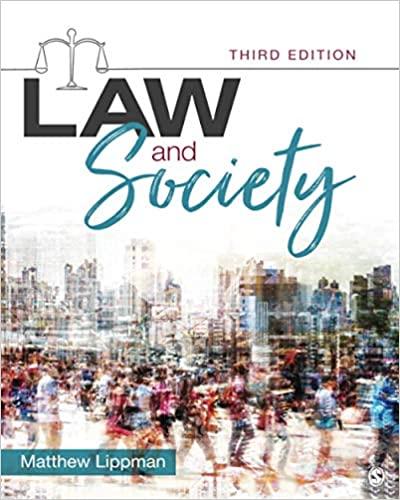Question
John operates a motorcycle repair shop from his home but finds that his business is limited by the small size of his garage. Driving by
John operates a motorcycle repair shop from his home but finds that his business is limited by the small size of his garage. Driving by a neighbor's property, he notices a for-sale sign on a large, metal-sided garage. John contacts the neighbor and offers to buy the building, hoping that it can be dismantled and moved to his own property. The neighbor accepts John's payment and makes a generous offer in return: if John will help him dismantle the garage, which will take a substantial amount of time, he will help John reassemble it after it has been transported to John's property. They agree to have the entire job completed within two weeks. John spends every day for a week working with his neighbor to disassemble the building. In his rush to acquire a larger workspace, he turns down several lucrative repair jobs. Once the disassembled building has been moved to John's property, however, the neighbor refuses to help John reassemble it as he originally promised.
1. Are the basic elements of consideration present in the neighbor's promise to help John reassemble the garage? Why or why not?
2. Suppose that the neighbor starts to help John but then realizes that, because of the layout of John's property, putting the building back together will take much more work than dismantling it took. Under which principle discussed in the chapter might the neighbor be allowed to ask for additional compensation?
3. What if John's neighbor made his promise to help reassemble the garage at the time he and John were moving it to John's property, saying, "Since you helped me take it down, I will help you put it back up." Would John be able to enforce this promise? Why or why not?
Renee Beaver started racing go-karts competitively in 2012, when she was fourteen. Many of the races required her to sign an exculpatory clause to participate, which she or her parents regularly signed. In 2014, right before her sixteenth birthday, she participated in the annual Elkhart Grand Prix, a series of races in Elkhart, Indiana. During the event in which she drove, a piece of foam padding used as a course barrier was torn from its base and ended up on the track. A portion of the padding struck Beaver in thehead, and another portion was thrown into oncoming traffic, causing a multikart collision during which she sustained severe injuries. Beaver filed an action against the race organizers for negligence. The race organizers could not locate the exculpatory clause that Beaver had supposedly signed. The organizers argued that she must have signed one to enter the race, but even if she had not signed one, her actions showed her intent to be bound by its terms. Using the information presented in the chapter, answer the following questions
- Did Beaver have the contractual capacity to enter a contract with an exculpatory clause? Why or why not?
- Assuming that Beaver did, in fact, sign the exculpatory clause, did she later disaffirm or ratify the contract? Explain.
- Now assume that Beaver stated that she was eighteen years old at the time that she signed the exculpatory clause. How might this affect Beaver's ability to disaffirm or ratify the contract?
- If Beaver did not actually sign the exculpatory clause, could a court conclude that she impliedly accepted its terms by participating in the race? Why or why not?
Step by Step Solution
There are 3 Steps involved in it
Step: 1

Get Instant Access to Expert-Tailored Solutions
See step-by-step solutions with expert insights and AI powered tools for academic success
Step: 2

Step: 3

Ace Your Homework with AI
Get the answers you need in no time with our AI-driven, step-by-step assistance
Get Started


